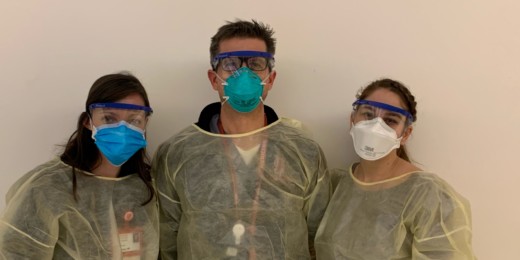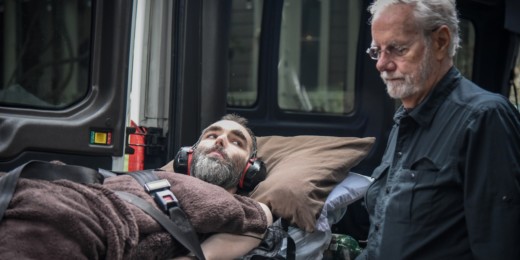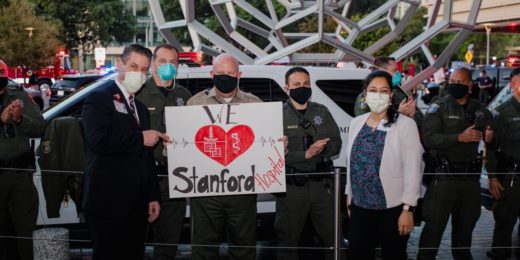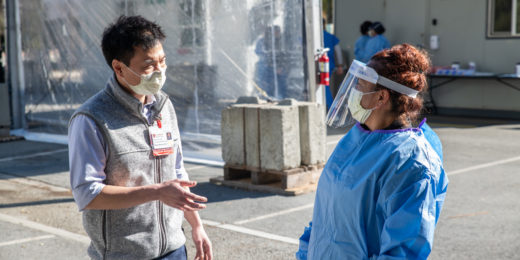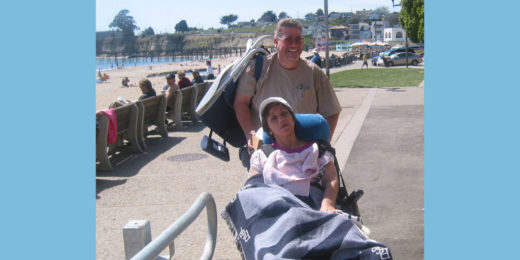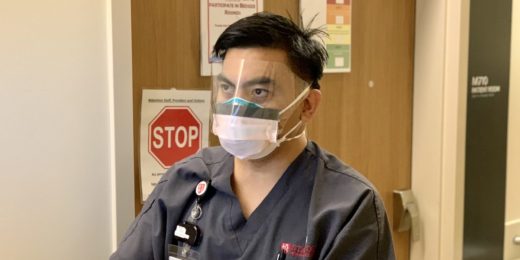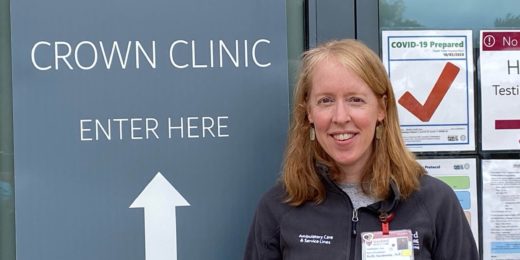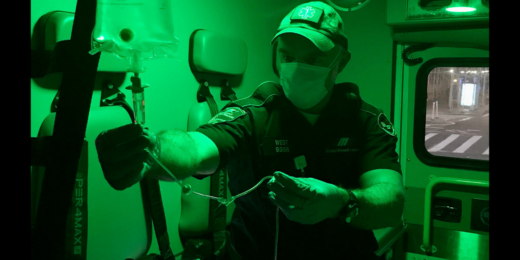In this Voices of COVID story, Stanford Children's Health physician Alan Schroeder, MD, talks about his work caring for kids with COVID-19 symptoms.
Category: Patient Care
I wrote a book about a scientist’s journey to save his desperately ill son
Stanford Medicine science writer Tracie White shares the origins of her new book that explores ME/CFS, family bonds, science, suffering, and much more.
When COVID-19 drained supplies and PPE, Stanford Medicine’s “guardian angel” created solutions
This Voices of COVID story shares how Amanda Chawla, supply chain vice president, kept Stanford's health care workers protected when COVID-19 caused PPE shortages.
Pain relief device uses real-world evidence to gain clearance, expanding options for kids
Tracking a pain-relief device's success in patients who aren't in clinical trials is seen as a promising approach to expanding treatment options for kids.
“Tremendously grateful”: Running drive-through COVID operations at Stanford Health Care
This Voices of COVID story features physician assistant Thanh Khong, who manages testing and vaccination operations for Stanford Health Care.
Walk With Me: Learning from patients and family partners
Medical student Marcello Kendrew Chang shares the experience of a family caregiver he met during Stanford Medicine’s yearlong Walk With Me course.
Less is more? Focused genetic testing recommended for breast and ovarian cancers
Ovarian cancer genetic testing is underused and large gene panels lead to uncertain results, particularly for non-white patients, a Stanford Medicine study finds.
“The team has risen to the challenge”: Nurse steps up during pandemic
This Voices of COVID piece features Charles Ayson, an experienced night-shift nurse on a COVID-19 unit, who is helping his team of nurses navigate the pandemic.
Take heed: Turn to the experts to interpret pharmacogenetic tests
In the burgeoning field of pharmacogenetics, adhering to expert-developed guidelines is increasingly important, a Stanford Medicine physician emphasizes.
“A personal hero”: Caring for COVID-19 patients and medical colleagues
This Voices of COVID piece features nurse practitioner Kelly Sanderson, who is working to keep her patients healthy and her coworkers motivated.
PA candidate at Stanford Medicine was medic in war zones and New York City COVID-19 surge
This Voices of COVID story features Stanford Medicine PA student Zach West, who was a New York City 911 paramedic when COVID-19 hit.
Data from twins suggests that gut bacteria are important in food allergies
A Stanford-led study of twins with and without food allergies has uncovered differences in the fecal bacteria of allergic and non-allergic individuals.
Hospitals’ DNR orders are increasingly complex and varied
A study from the Stanford Center for Biomedical Ethics shows wide variation in how hospitals interpret and implement patients’ end-of-life treatment wishes.
A digital approach to end-of-life planning
A team in a Stanford Biodesign course that pairs computer science students with physicians developed an app designed to prompt end-of-life conversations.
Based on genes, nearly everyone is likely to have an atypical response to at least one drug
Stanford Medicine researchers found that, based on genetic makeup, 99.5% of people are likely to have an atypical response to at least one drug.
Best of 2020: Stanford Medicine’s top podcasts
In 2020, contributing editor Paul Costello’s top podcasts reflect the challenges of the coronavirus and other timely health care issues.


